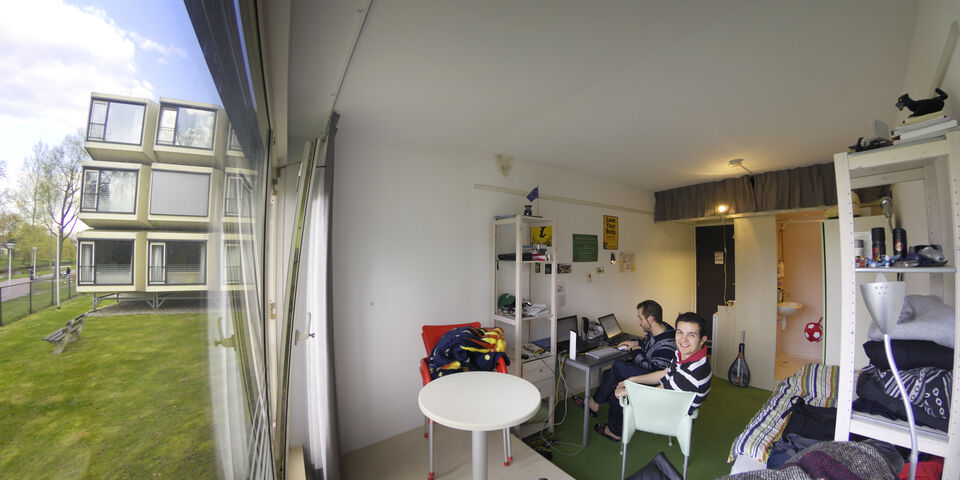Koeleman conducted her study for the Tilburg University TiasNimbas Business School and TU/e in light of her graduate research project at the Department of Built Environment. “The exact number of knowledge workers is unknown, but estimates vary from 12,500 to 30,000. In 2006 that estimate was 4,500, so the number has grown fast. Numbers are vague because it’s hard to distinguish between asylum seekers, refugees, expats, and students.”
She created an online questionnaire and sent it to international knowledge workers and international students, most of whom she found through employee newsletters, the Holland Expat Center South, and Facebook and LinkedIn pages.
Previous research showed that expats’ housing preferences are quite similar to those of Dutch knowledge workers with a similar lifestyle. But Koeleman wanted to find out what their problems and complaints arose from, so she decided to research the immigration process as well: when do they arrive, and how are they informed? She discovered that housing preferences differ per phase. Problems are most prevalent in the first phase, except if employers mediate for knowledge workers. Companies helped out in 39 percent of cases, especially for academic employees.
Problems often arise because expats have to search for accommodation from their home countries. They don’t have a realistic idea what to expect for the money they’re willing to pay.
Koeleman: “Expats often indicate they want to spend no more than 350 euro a month for an apartment in the city center. Since that’s impossible, most people have to let go of their accommodation of choice.
Pressure prevents expats from negotiating
Generally, the search for accommodation scores badly, Koeleman noticed. “Most expats want a rental home (85 percent), because they have less job security. But whoever wants to rent is put on a waiting list, so they often have to resort to private rental. Mid-price rental homes are few and far between, even for Dutch tenants. And expats often have to move in a few weeks’ time, which is stressful, puts them at a disadvantage, and leaves little room for negotiating. They often accept their first option for lack of choice. There’s the language barrier, too: information and contract are often available in Dutch only.”
Koeleman continues: “Opposed to Dutch tenants, expats prefer furnished homes (71 percent), and only few listings meet that requirement. Fees, one-time costs to acquire a house, can be high as well. Realtors often charge a month’s rent for their services, and an expat who doesn’t find a furnished accommodation has to buy everything only to leave again twelve months later. Those costs can be excessive for short stays.”
Despite the concessions, the majority is satisfied. On a scale of 1 to 5 (5 being most positive), 27 percent scores their first accommodation with a 1 or 2; 44 percent ticked 4 or 5.
Koeleman: “The longer they stay, the fewer the differences between expats and Dutch house hunters. If they already live here, knowledge workers often move because they want a better or larger home, especially if they accepted their first accommodation ‘for the sake of living somewhere’. A new partner or a baby are also reasons for moving.”
A total of 153 people filled out the questionnaire entirely. The data of 137 of them were fit for analysis. Is this study useful for cities and other authorities to see what kind of housing is in demand? Koeleman: “A more wide-scale, quantitative study is necessary to determine what percentage is in favor of potential plans. Still, this research project shows a clear trend, which is partly because of the qualitative analyses I added. It would be great if this knowledge were used for further research. A larger study can only work with the participation of many employers. For this project, people had to apply for the questionnaire themselves, and it’s hard to reach lots of people. It’s just that little is known about this issue, which obviously shows from the range of knowledge worker estimates.”
In March, Koeleman hosts a stakeholder meeting, where her results will be presented. The presentation is followed by a brainstorming session and a discussion about short-term and long-term ideas.
Those who wish to attend can contact Janneke at J.Koeleman@tiasnimbas.edu.


Discussion